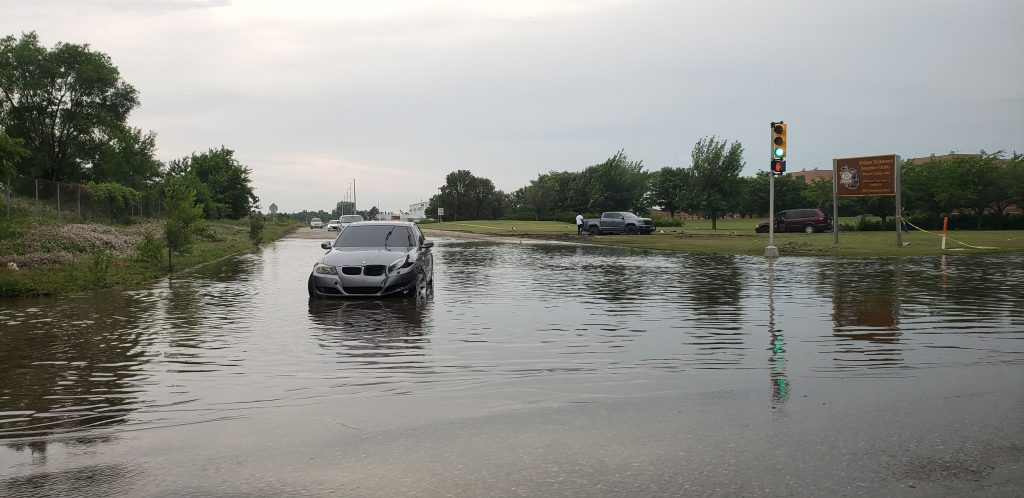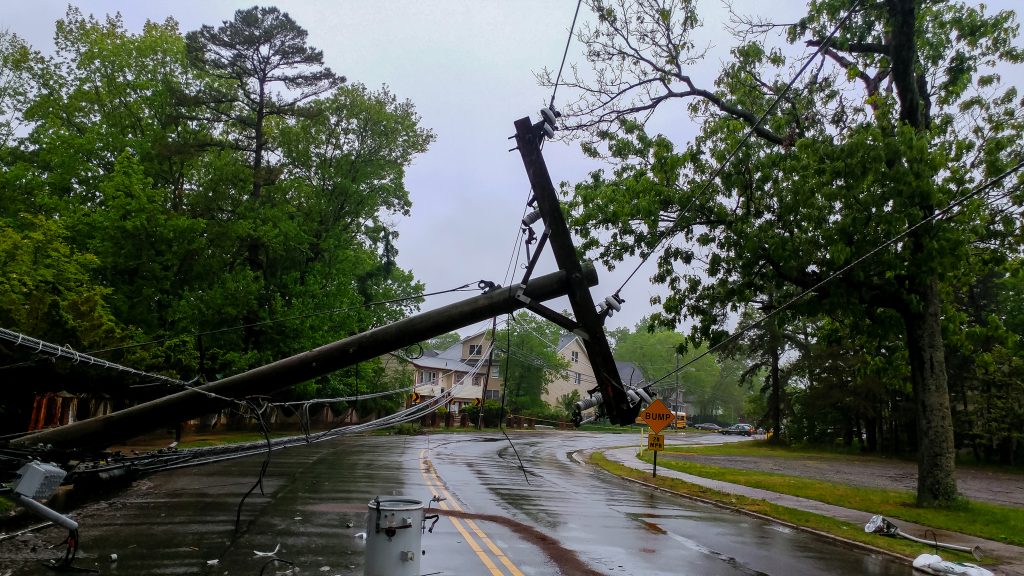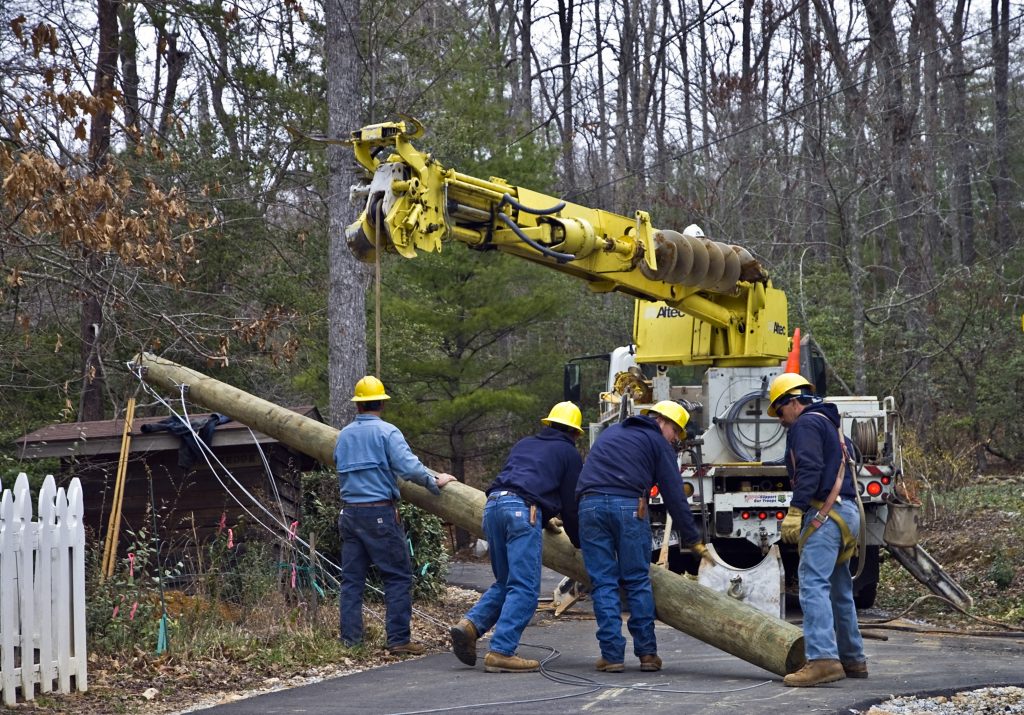Want To Municipalize Your Utility? I Mean, Really?
Southeast Michigan is currently dealing with the aftermath of a brief but violent storm that killed three people across the region, produced flash flooding, and downed thousands of utility lines. One Redditor posted a screenshot that seemed to show an estimated time of power restoration of September 28th. That’s not a typo. These incidents always seem to spark conversation about how all investor-owned utilities are bad, so we should municipalize them (make them public, like, nationalizing but local). I’m not here to defend DTE, but to tell you why municipalizing a public utility is thoroughly unlikely– and probably a bad idea. In the meantime, there are plenty of suggestions from advocates (and technical experts– whodathunk?) on how to actually make this, well, not happen every time it rains.

DTE: “We Can’t Fix It! Unless You Pay Us Lots More Money.”
First, the biggest complaint from advocates is that the investor-owned utility has done an inadequate job of maintaining and hardening its infrastructure. To the uninitiated, DTE generates power and manages local distribution. (The third leg of the stool on which the electric economy sits, transmission, is managed by someone else. But that’s a story for another day– it’s too complicated for a 750-word blog post). DTE has had some responses to the proposals for how to build better infrastructure.
Better Utility Regulation: How We Can Get Out Of This Mess
We’ll debunk some myths here (that the company is fond of propagating). They are:
- “It’s too expensive to underground power lines.“ There are certainly a few disadvantages of underground lines. First, it’s more costly. This is fairly intuitive, because everything has to be dug up and, well, placed underground, obviously. This can be mitigated by doing it in phases, coordinated across utility jurisdictions (“dig once”). Imagine if every time a street was repaved, it also involved undergrounding electric lines, installing faster fiber internet, and maybe even upgrading water lines. We can have this world. There is a distinct disadvantage in undergrounding in that it’s harder to add capacity. But. (If only they had someone who was a subject matter expert in understanding urban growth patterns! Maybe a city planner. I don’t know). Anyway, this is what they call a recoverable expense. It gets paid off by the ratepayers and given favorable tax treatment. In other words, there’s no financial reason not to do it.
- “Distributed generation [like rooftop solar] will make this issue worse. So, we need to charge more money for it, and make it so it’s not economically viable.” Rooftop solar isn’t going to solve the entire world’s energy problems. But it could solve a large percentage of them. DTE successfully lobbied to eliminate net metering– in which customers can sell excess power back to the grid at the retail rate. Now they want to lower the already-paltry rate they’re paying for excess generation. They argue that the process of interconnection and local feeder maintenance is too expensive for it to be economically viable. It’s simply not true. It’s fine for utilities to charge service or interconnection fees. But it’s not fine for them to quash innovation that decentralizes the power grid in a way that just might make it more resilient to increasingly severe storms.
- “DTE cares about decarbonization.” DTE probably employs some people who care about climate change. But it also employs a lot of climate deniers. While it’s saying that solar generation would screw up its grid, other participants in MISO disagree, while DTE still goes big on fossil fuels. Ratepayers will be on the hook for what will eventually be what we call stranded assets– once they are made obsolete by renewables. DTE is kinda getting there on wind. Not so much on solar.
- “We’re doing the best we can.” This isn’t true, and it’s reflected in the company’s record profits. It wants to keep that train rolling, so it keeps petitioning for rate increases. This is, of course, their right. But it’s also up to the regulators to actually hold the reins.

The Needlessly Political Quagmire Of Energy
The right wing wants to blame renewables for the grid falling apart. This is clearly not factual, since Michigan’s generation mix is mostly coal and nuclear with renewables occupying mere percentage points of the pie. Indeed, while an increased reliance on electric vehicles will increase local grid congestion, it’ll also incentivize upgrades of local grid systems, and it’ll empower V2G connectivity to improve local resiliency (again– a story for another day!).
A pragmatist will look at the situation and recognize that DTE especially in Detroit is serving far fewer customers than it would have been serving when these local feeders were built. Cut out a million and some customers who have left the city, and you still have to maintain the same infrastructure. This is a valid point that the company has raised in the past. But it doesn’t fix the issue.
Meanwhile, the farther left you get on the political spectrum, the louder the calls become to figure out some way to create a public alternative to DTE. Proponents argue that it’d be more reliable because it’d be serving the people instead of shareholder interests. I’m here to tell you that, like fetch, it’s unlikely to happen. In a region that can’t muster the wherewithal to get bus lines that cross municipal boundaries, there is virtually zero possibility of municipalization of an investor-owned utility. Not even Jones Day (of Detroit bankruptcy scandal fame) could negotiate a good deal on this one. Why am I saying this?
The Role Of Regulation: Monopolies Will Only Innovate If Forced To
The issue is not that DTE is a corporation. The issue is that the regulators have failed to do their jobs in holding the company accountable. Michigan’s business-friendly regulatory environment– the same one that leaves my front porch covered in black soot and other PM2.5– not only enables this passively, it encourages it. Municipal entities struggle against this same current, which is why I think municipalization would be a bad idea. The city of Detroit has done surprisingly little to advance sustainability, and the same is true with the region at large. Do we want these entities serving as administrators of a crumbling power grid? Absolutely not.
My advice? Focus on the regulation, people! Participate in the regulatory process. You don’t need to be an expert. Go to meetings. Organize. Write to the MPSC. And write to your elected representation. Work with the people who participate in the regulatory process. Focus on the things we can change relatively easily. Easy targets include getting back net metering. Maybe even getting a feed-in tariff for solar power. But before you start saying that we need to just blow it all up and start over again, remember that municipal utilities have the same problems that investor-owned utilities do– just with fewer resources and with the added layer of municipal dysfunction. But we must always demand accountability and make sure we are constantly pushing for innovative and adaptive solutions.


